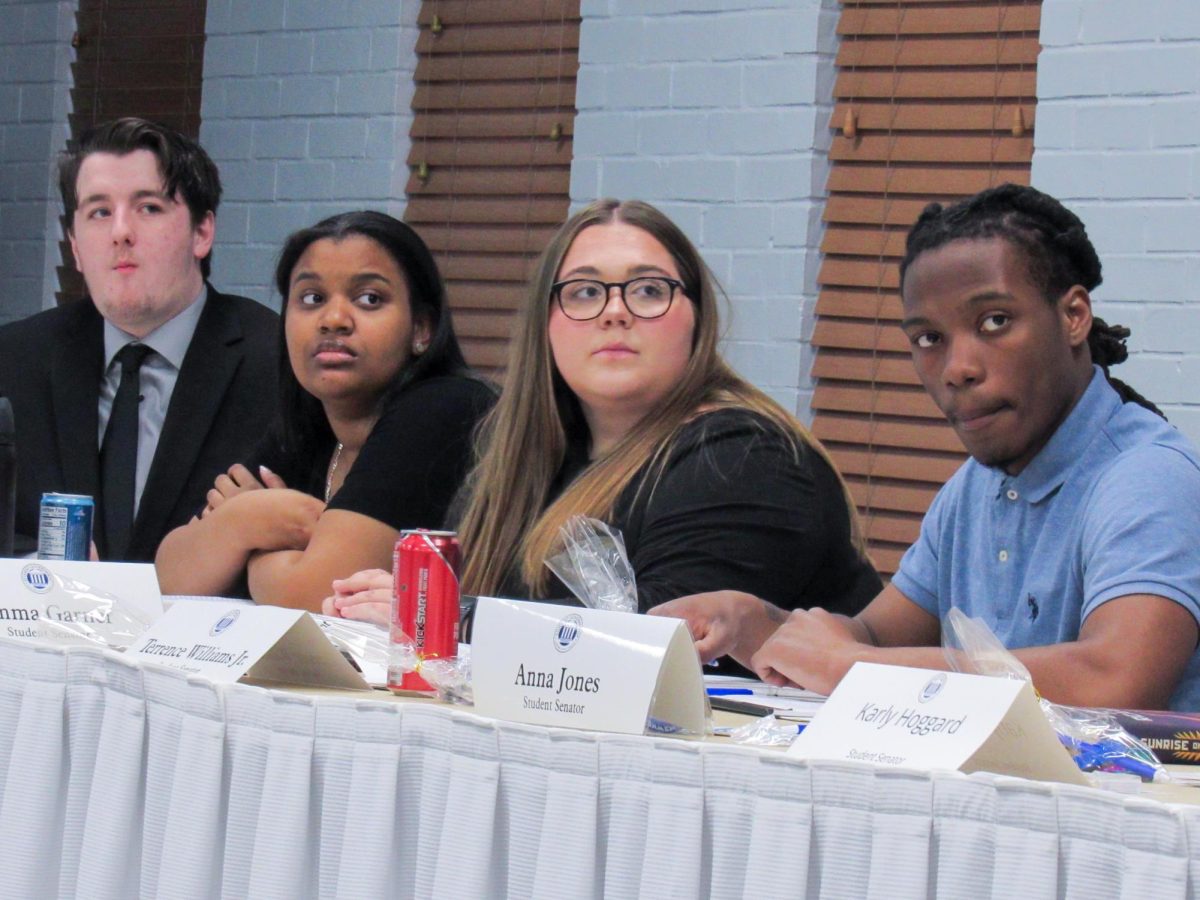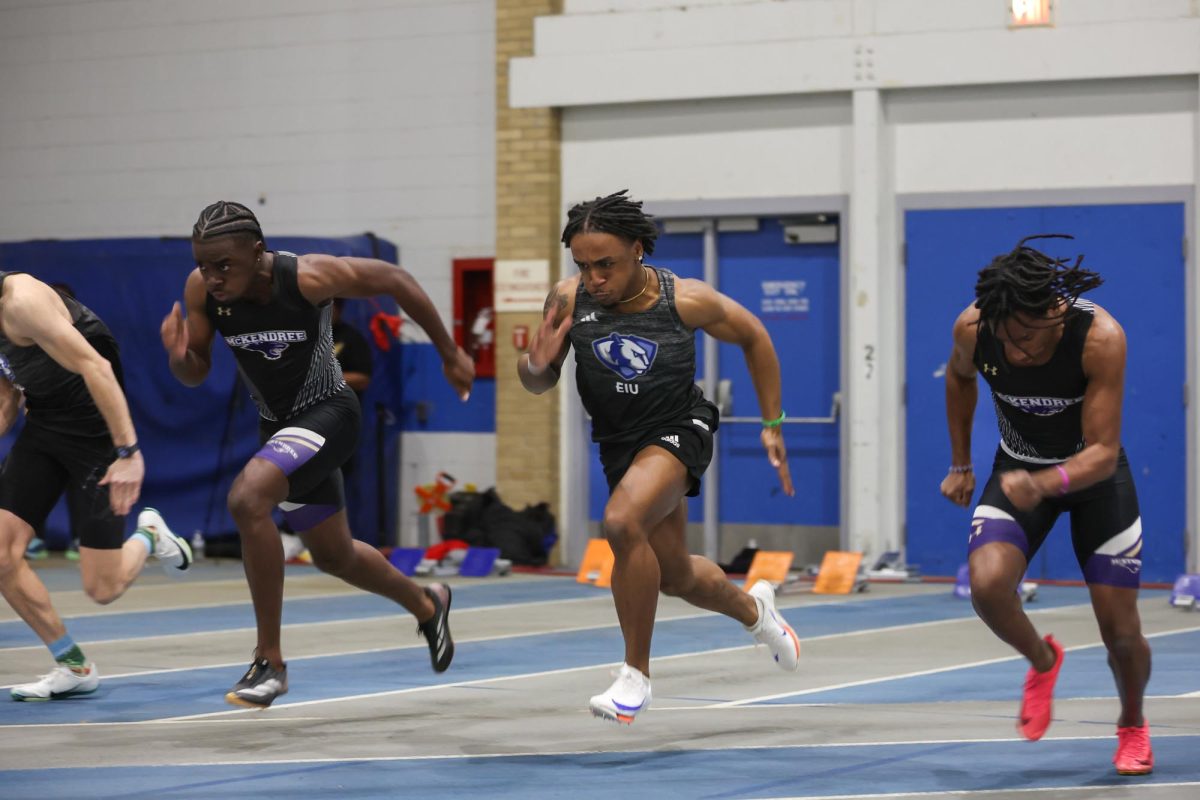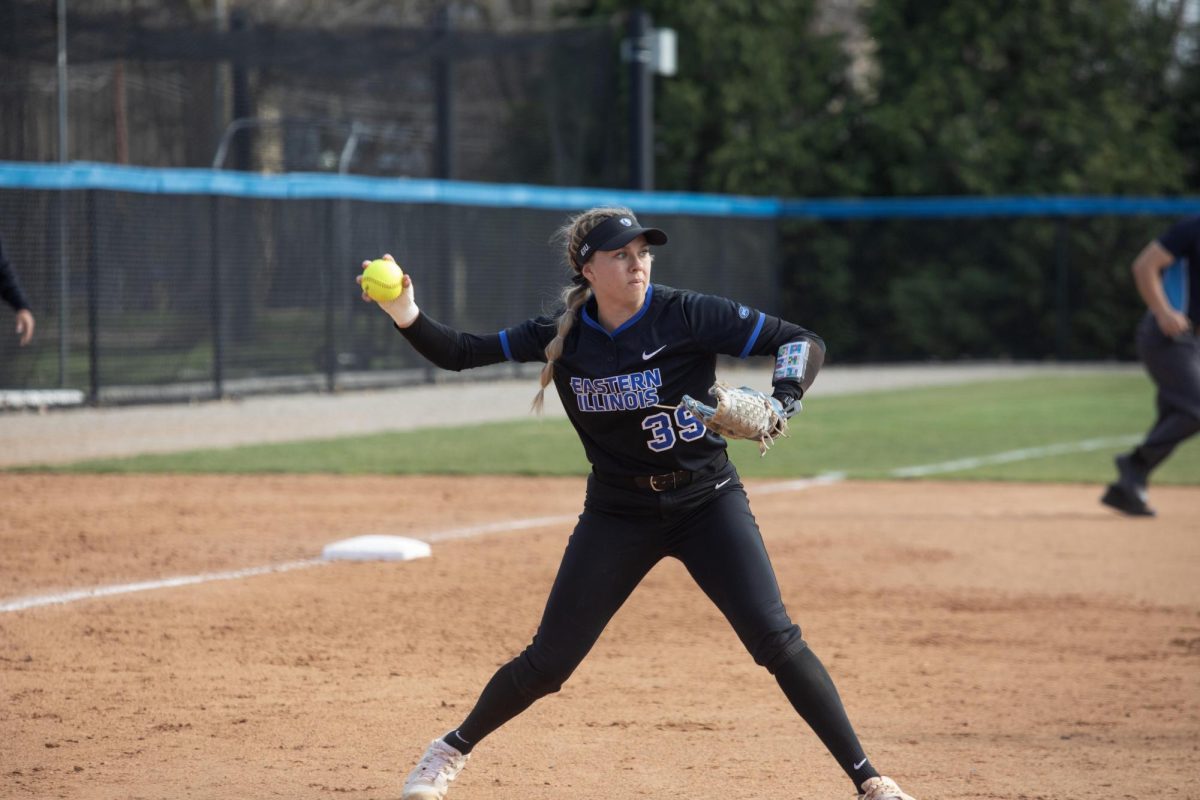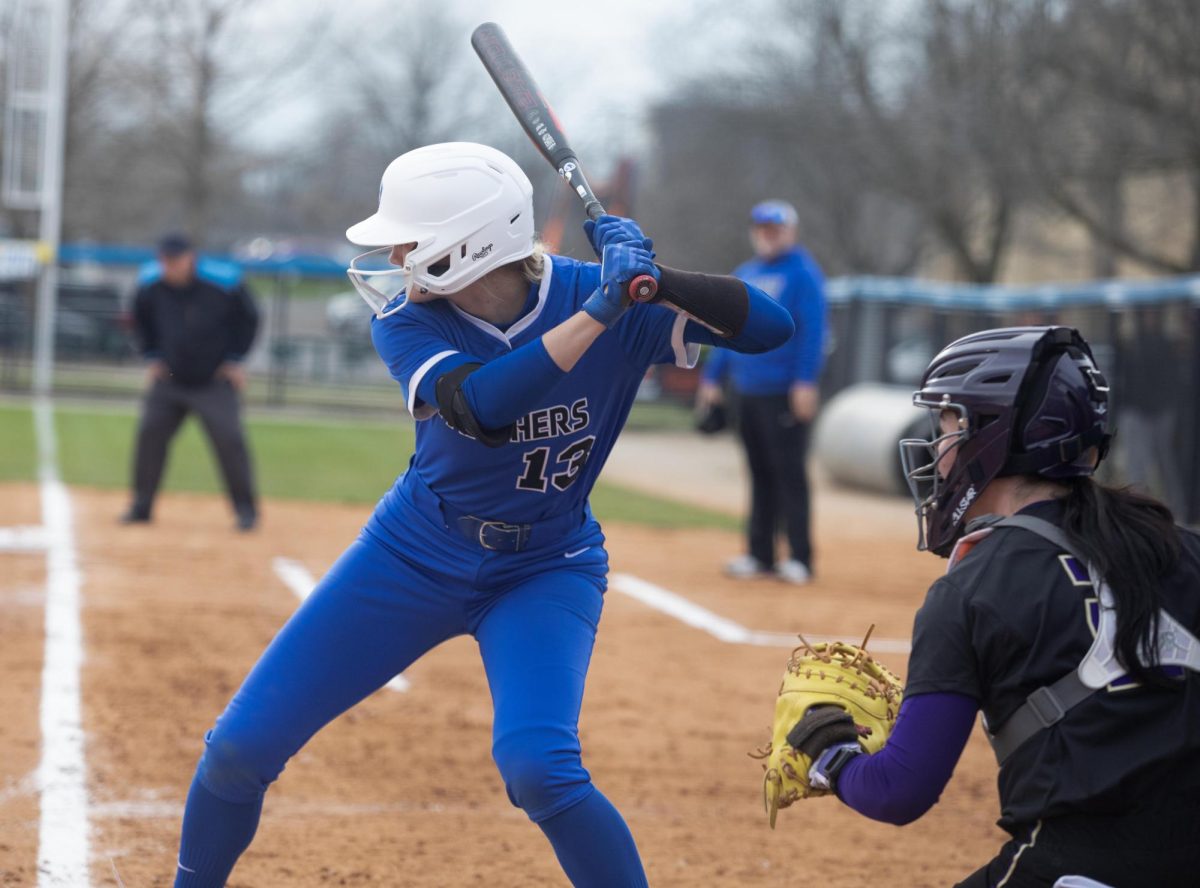SCEC works to make events more accessible
October 19, 2017
Eastern’s chapter of the Student Council for Exceptional Children is working to make football games and other events more accessible for people with disabilities that cause them to have sensory issues.
The SCEC is giving out bags at football games, filled with noise-canceling headphones that can dull loud sounds, a stress reliever ball and three different fidgets to help if they need stimulation.
Jennifer Stringfellow, a co-adviser to the SCEC and special education professor, said they also try to make sure that before game families get a schedule of events that lets them know things like when the marching band is playing.
“We want it to be an enjoyable experience for everyone,” Stringfellow said.
Samantha Dillon, president-elect of the Student Council for Exceptional Children, said if those with disabilities want to go to football games or similar events, their sensory issues might hold them back from doing so.
“If there’s a lot of loud noise it might be overwhelming for them, anything with a lot of stimulation at once,” she said.
Stringfellow said sometimes, families will not go to an event or pick and choose where to go if one member has a disability, where integrating all senses is a difficulty.
They will also make certain accommodations, such as not going too high in the bleachers, or going where there is more space.
However, these kinds of things are not always easy to do.
This is where the bags come in.
“It’s all about getting the whole family to enjoy (the event) and not feel like a burden,” Stringfellow said.
Now, those who are a participating in A-OK at Eastern are trying to get the word out about what they are doing.
“Even the first person we talked to about it spread the word,” SCEC president Eric Weber said. “We always tell them if you know anyone in the community who could benefit let us know.”
All that is needed is one or two people who could spread the word, Weber said.
As of right now, they have just had a table set up outside of a couple of football basketball games, but each year those participating in A-OK have been working on getting the word out.
If family members of someone with sensory issues cannot make it to one of the games but are interested in getting a bag, they can email co-adviser Katie Havercroft at kahavercroft2@eiu.edu.
If a family needs a bag, they can go to the table and write their name on a list to get a free bag.
Havercroft, co-adviser to SCEC and a special education professor, said A-OK started out of the Autism Center in Tulsa, Okla., and has spread to other places since then.
“The Seattle Seahawks actually implemented A-OK at their stadium three years ago now,” Havercroft said.
When Havercroft read about it on ESPN wire, she contacted Tulsa to see if A-OK could come to Eastern.
The SCEC gets most of its money for the bags through fundraisers, such as the one it does with Fannie May and Reeve’s Tees.
Last year, the SCEC was awarded $500 to help with marketing and branding A-OK at Eastern by a Ray Graham Memorial Grant.
In November, students, including Weber, will present on A-OK at the Illinois Council of Exceptional Children’s Fall convention.
“We’re here to serve the need,” Stringfellow said. “We want to help support people in the community with disabilities here and let them know we’re here.”
Cassie Buchman can be reached at 581-2812 or cjbuchman@eiu.edu.













![[Thumbnail Edition] Junior right-handed Pitcher Lukas Touma catches at the game against Bradley University Tuesday](https://www.dailyeasternnews.com/wp-content/uploads/2025/03/MBSN_14_O-e1743293284377-1200x670.jpg)

![[Thumbnail Edition] Senior Foward Macy McGlone, getsw the ball and gets the point during the first half of the game aginst Western Illinois University,, Eastern Illinois University Lost to Western Illinois University Thursday March 6 20205, 78-75 EIU lost making it the end of their season](https://www.dailyeasternnews.com/wp-content/uploads/2025/03/WBB_OVC_03_O-1-e1743361637111-1200x614.jpg)







































![The Weeklings lead guitarist John Merjave [Left] and guitarist Bob Burger [Right] perform "I Am the Walrus" at The Weeklings Beatles Bash concert in the Dvorak Concert Hall on Saturday.](https://www.dailyeasternnews.com/wp-content/uploads/2025/03/WL_01_O-1200x900.jpg)
![The team listens as its captain Patience Cox [Number 25] lectures to them about what's appropriate to talk about through practice during "The Wolves" on Thursday, March 6, in the Black Box Theatre in the Doudna Fine Arts Center in Charleston, Ill.](https://www.dailyeasternnews.com/wp-content/uploads/2025/03/WolvesPre-12-1200x800.jpg)
















